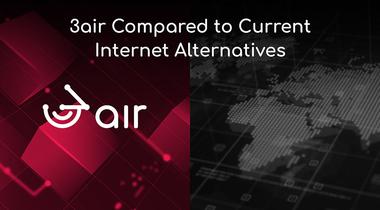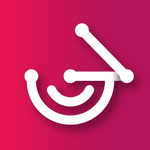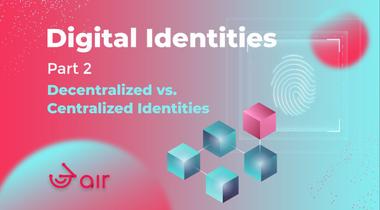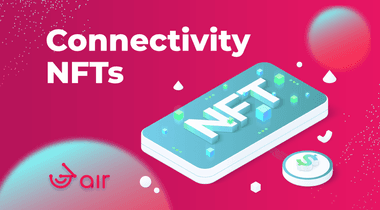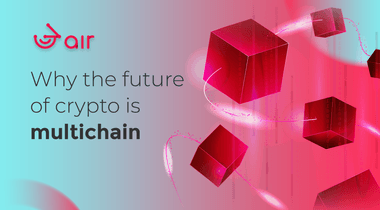Table Of Contents
3air’s goal is to become a cross-border Internet Service Provider (ISP) that offers broadband connectivity with speeds of up to 1 Gbps at affordable rates to currently underserved people and businesses in African countries. This post will help you understand the demand for 3air’s services and its advantages compared to the current options in the market.
The current state of connectivity in African countries
Currently, only about 46% of the African population has any access to Internet, with most of them relying on mobile connectivity (EDGE and 3G networks) to get online. Connectivity levels and service providers differ between countries, but in general, access to Internet remains far below the world average and Internet connections are expensive while being unreliable.
There are three main types of networks that users can connect through:
Mobile cellular networks - The vast majority of African Internet users have access to this type of network. They can connect their devices using GSM or CDMA technologies, depending on where they live. However, these networks are not always reliable as they rely on towers which may be out of range, damaged or not maintained. In addition, many subscribers face data caps that limit how much data they can use each month. Data prices are very expensive and often not affordable.
Fixed line networks - These networks provide fixed connections to homes and offices. They typically offer higher bandwidth than mobile networks, but they require installation costs and ongoing maintenance fees. They are also fairly expensive, so they are mostly used by enterprise customers and foreign organizations and don’t work well. Hilina Damte, co-founder at G&H Blockchain and partner at PayWay Ethiopia, speaks of her experiences with fixed line providers in Ethiopia: “Ethiopia is lagging behind in connecting people to the internet. Slow and unreliable internet and low penetration created negative impact. The fixed connection in Ethiopia is very unreliable due to slow speed or technical issues. Many people have to go days without internet connection due to low tech staff from Ethio Telecom, a monopoly provider and still have to pay for the days we were not able to use.”
Wireless networks - Wireless networks allow users to connect to the Internet without having to install cables. Some wireless networks are based on Wi-Fi standards, while others use satellite links. However, these networks often lack coverage in rural areas and in some urban centers. Most of the time, you can find a wireless network set up but there is no actual internet connection.
In order to improve the situation, governments across Africa have been trying to create more competition among ISPs. For example , South Africa has recently launched a new ISP called M-Net, which provides high speed fiber optic cable connections to homes and businesses. Other initiatives include providing free Wi-Fi hotspots in public places like airports, libraries and schools.
However, despite these efforts, the overall level of Internet penetration remains low. According to a recent report by Akamai Technologies, only 12% of all websites were accessible in sub-Saharan Africa in 2015.
Why does Africa need better Internet?
Many of us live in a country where access to high-speed Internet is a normal part of every day life. It’s hard to imagine work, social life or even staying in touch with our families without a good Internet connection.
However, it’s still a reality for many people living in African cities. There are several reasons why Africa needs better Internet.
First, it enables economic growth and development. Many companies today depend on the ability to communicate effectively with customers, suppliers, partners and other stakeholders. As such, they need fast, reliable and secure connections to do business.
Second, it helps people learn and develop skills. With easy access to information, education and training becomes easier and cheaper. In places that lack infrastructure to get to schools or universities, high-speed Internet can enable students to enroll online and follow classes at a distance.
Third, it improves health care delivery. Medical professionals and patients alike can benefit from improved communications with international healthcare institutions.
Finally, it promotes social inclusion. People who cannot afford Internet services are excluded from many parts of today’s society, limiting their opportunities to get informed, participate in decision making processes and gain employment.
The current state of connectivity
Many people and business in many African cities have to deal with the limitations of bad internet connectivity every day. Their connectivity is slow, unreliable or expensive. Many have to recharge their data plans several times per month and spend a large portion of their income on mobile data. It is a common practice to own two or three different phones with mobile subscriptions to different operators to be able to cover your internet requirements for the full month.
Some of the challenges facing African consumers and providers when using the Internet:
- Limited availability of high-speed Internet.
- High cost of data usage. Data charges vary greatly between regions and can be as high as $20-$50 per GB.
- Spotty and unreliable connections. The networks are congested and services are too slow to communicate properly or work online.
Due to the lack of cable infrastructure, mobile network providers started to enter the ISP space by providing Wi-Fi devices for people to have Wi-Fi at home. These routers connect to the mobile network (EDGE, 3G, 4G) and create a Wi-Fi network for you at home. While these devices are good for mobile connectivity, they are not good enough for fixed broadband connections for home or business use.
What makes 3air different?
Our partnership with K3 Telecom allows us to leverage K3’s experience and expertise in building out the network. Our approach differs from other providers because we’re not looking to build a large nationwide network from the start. Instead, we focus on connecting targeted cities. We believe that if we start in one place, we’ll be able to provide Internet to everyone else in the region quickly and efficiently.
We also think that our model will allow us to keep costs down while delivering a superior product. The average cost of deploying a fiber optic line in Africa is about $1 million per kilometer. By partnering with K3, we’re able to use existing infrastructure instead of having to lay miles of fiber ourselves. That means we can connect thousands of people for less than half the price of what others charge, within a period of only 6 months.
Services that differentiate 3air from the competition
K3 Telecom, which is 3air’s local distribution partner, offers broadband internet, digital TV and IP telephony to customers. Let’s take a look at the offerings for each of these services and how they compare to alternatives.
Broadband Internet
K3’s broadband Internet services provide end users with download speeds of up to 1 Gbps. Most mobile internet providers operate on 20 MHz to 40 MHz split between all people connected to the network. This means end users get about 70 Mbps per base station. In comparison, K3 operates on 600 MHz and has 17,000 Mbps per base station, providing 240 times the performance of mobile network towers.
Digital TV
Currently, the two main providers of digital TV are DSv and Canal+. They both operate on satellite technology. Both offer various channel offerings with prices ranging from $7 per month to $105 per month. The biggest disadvantage of satellite TV is signal disturbance from bad weather conditions (rain). Another issue with satellite TV is that interactions are only one-way, so the user cannot interact with the content on the receiver.
With K3’s Digital TV packages, users have access to more than 150 TV channels. Features include video on demand (VOD) with new movies and series being added every day. Users can also use Time Shift to watch missed TV shows up to 7 days prior, and pause, forward or rewind the content. K3 also includes a personal recorder to record favorite TV shows and an electronic program guide. In addition, users have access to Mobile TV to watch TV channels from their smartphone or tablet devices.
IP Telephony
A feature that is particularly appealing to businesses: IP telephony. Fixed phone line services are provided by some current market participants for additional fee. However, not many customers end up paying for these services as the use of mobile phones is widespread and businesses would be interested in having PBX systems. K3 offers IP telephony and PBX systems at affordable rates.
Pricing
The following table gives you an overview of the pricing of the biggest/most widely used Telecom providers in our target countries.
| Data Providers | Plan | Speed | Monthly Cost USD | Notes |
|---|---|---|---|---|
| Sim-card based Providers | ||||
| Vodacom | Limited: 30GB | LTE | $75.00 | Only 1/5th data of avg. K3 customer uses |
| Vodacom | Limited: 100GB | LTE | $100.00 | Less data than avg the K3 consumer uses |
| Satellite Offers | ||||
| Afrikanet Data | Limited: 100GB | 20Mbps | $300.00 | Has high latency, 10 seconds to open webpage |
| Afrikanet Data | Limited: 200GB | 20Mbps | $600.00 | Has high latency, 10 seconds to open webpage |
| Afrikanet Data + VoIP | Limited: 100GB | 20Mbps | $400.00 | Has high latency, 10 seconds to open webpage |
| Afrikanet Data + VoIP | Limited: 200GB | 20Mbps | $800.00 | Has high latency, 10 seconds to open webpage |
| Dedicated Offers | ||||
| Global Broadband Solution | Dedicated | 1Mbps | $700.00 | (plus installation cost $1,500 - $5,000) |
| Global Broadband Solution | Dedicated | 3Mbps | $2,100.00 | (plus installation cost $1,500 - $5,000) |
| Global Broadband Solution | Dedicated | 5Mbps | $3,500.00 | (plus installation cost $1,500 - $5,000) |
| Orion-RDC | Dedicated | 1Mbps | $320.00 | Orion-RDC Dedicated 3Mbps $960.00 |
| Orion-RDC | Dedicated | 5Mbps | $1,600.00 | |
| Orion-RDC | Dedicated | 3Mbps | $960.00 | |
| Airtel | Dedicated | 5Mbps | $5,104.00 |
Table 1 Africa broadband competitive pricing overview
K3 currently offers its internet-only services starting at 780.000 LE ($67.86) with unlimited download an upload at speeds up to 7 Mbps. To get up to 15 Mbps download speed, the price is around $155. K3’s triple play pricing that includes internet, digital TV and IP telephony starts at $85 for 7 Mbps, and goes to $173.13 for speeds up to 15 Mbps.
As K3 expands and benefits from economies of scale, plans are to further cut prices by up to 50% to reach a wider audience and become more democratic.
If you’re interested in learning more about how 3air and K3 telecom will improve the state of connectivity, check out these articles:
- Everything you need to know about K3 Last Mile
- Internet connectivity in the Democratic Republic of the Congo
- The current state of Internet connectivity in Nigeria

